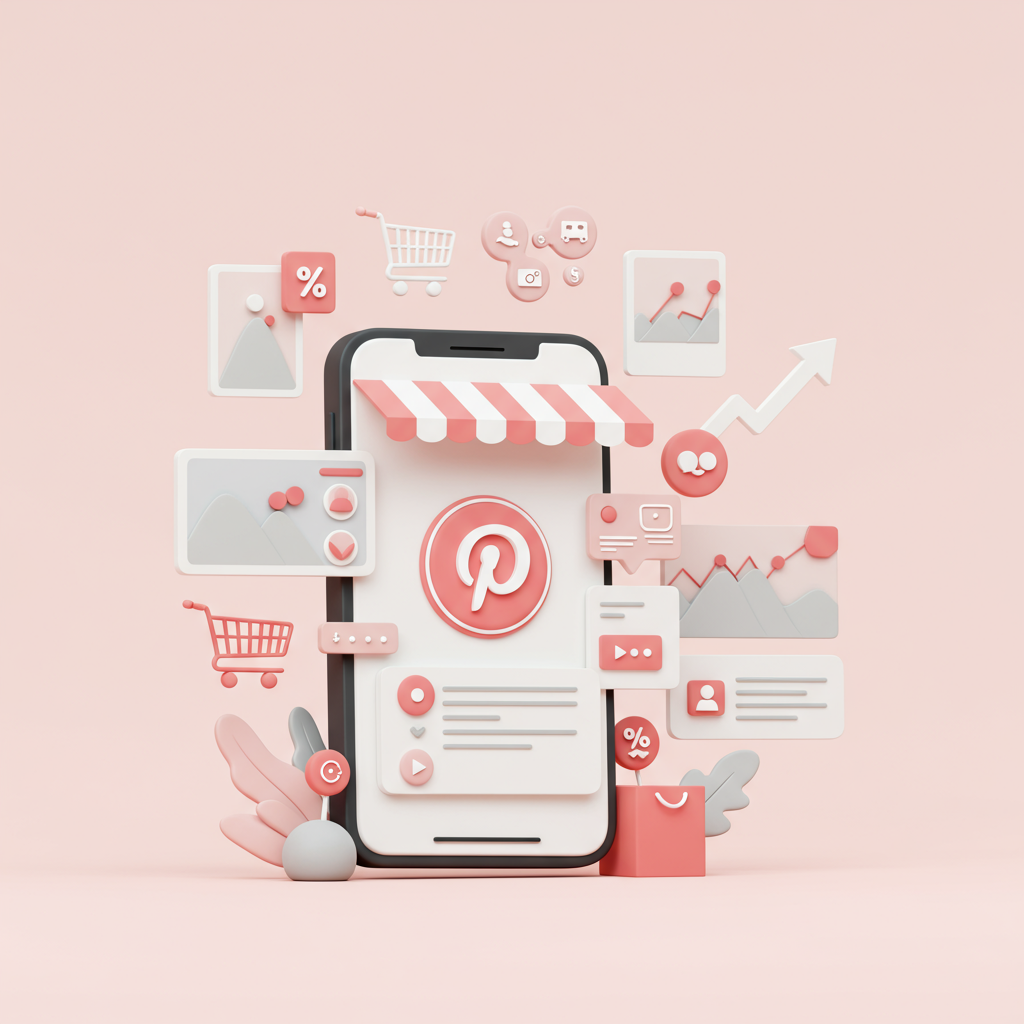Discover how leveraging Pinterest’s unique visual platform and its powerful influencers can drive significant traffic and sales to your e-commerce store.
Hello fellow merchants! I’m here today to share some insights that I believe can truly transform how you approach marketing for your Shopify store.
We’re going to dive deep into the world of Pinterest influencers and how leveraging their reach can significantly boost your brand’s visibility and sales.
Many of us are familiar with Instagram or TikTok influencers, but Pinterest offers a unique, often overlooked, opportunity for e-commerce businesses.
I’ve found that Pinterest acts more like a visual search engine and discovery platform, where users are actively looking for inspiration and products to buy.
This intent-driven environment makes it incredibly powerful for direct-to-consumer brands like yours.
So, why influencers on Pinterest specifically? Because they’ve already built trust and an engaged audience within specific niches.
Their followers look to them for ideas, recommendations, and solutions, making their endorsements highly valuable.
My first piece of advice is to understand that Pinterest collaborations are often about long-term discovery rather than instant viral hits.
Pins have a much longer shelf life than posts on other platforms, meaning an influencer’s content can continue to drive traffic to your Shopify store for months, even years.
The initial step I always recommend is identifying the right influencers. This isn’t just about follower count; it’s about relevance and engagement.
Start by searching directly on Pinterest using keywords related to your products. Look for popular pinners and boards in your niche.
You can also use influencer marketing platforms, though I often find direct outreach after thorough research to be more effective for Pinterest.
Pay close attention to their content style. Does it align with your brand’s aesthetic? Authenticity is key.
I always vet potential partners by looking at their engagement metrics: how many saves, clicks, and comments do their pins receive?
A high number of saves indicates that their audience finds the content valuable and actionable, which is exactly what we want for our products.
Once you’ve identified a few promising candidates, craft a personalized outreach message. Explain why you think their audience would love your products.
Be clear about your proposal: are you offering free products, a flat fee, an affiliate commission, or a combination?
For Shopify merchants, I highly recommend setting up unique discount codes or UTM parameters for each influencer. This allows you to accurately track conversions.
This tracking is crucial for understanding your return on investment (ROI) and optimizing future campaigns.
Consider different types of collaborations. Sponsored pins are common, but also think about board takeovers or dedicated product review pins.
Some influencers might be open to creating entire boards dedicated to your product line or a specific collection, which can be incredibly powerful.
When it comes to content creation, emphasize high-quality, visually appealing images and videos. Pinterest is all about aesthetics.
Ensure your Shopify store is optimized for Pinterest. This means having Rich Pins enabled, which automatically pull product information like price and availability.
Rich Pins make your products more discoverable and provide a seamless experience for users clicking through from Pinterest to your store.
I also advise creating specific landing pages on your Shopify store for influencer campaigns. This can help tailor the user experience and improve conversion rates.
After the campaign launches, monitor your Pinterest Analytics and Shopify’s referral traffic. Look for spikes in visits and sales originating from the influencer’s pins.
Don’t be afraid to repurpose the influencer’s content on your own Pinterest boards and other social channels, always giving proper credit, of course.
One challenge I’ve encountered is managing expectations. Pinterest is a long game. Don’t expect overnight sales, but rather a steady stream of qualified traffic over time.
Building relationships with influencers is also vital. A successful first collaboration can lead to ongoing partnerships, which are invaluable.
Remember, the goal is to inspire and provide value to the Pinner. If you do that, the sales will follow.
What do you think about this article? I’d love to hear your thoughts and experiences with Pinterest marketing!
In conclusion, integrating Pinterest influencers into your marketing strategy can be a game-changer for your Shopify store.
It’s about tapping into a highly engaged, visually-driven audience that is actively looking for products just like yours.
By following these steps, I’m confident you can unlock a powerful new channel for growth.






